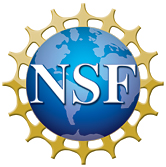When we think of scientists performing research, we imagine them working long hours for the greater good. We imaging them working in well-equipped university labs on a cure for cancer or a way to halt climate change with eager students clamoring to help them.
Scientists today have to get government grants to pay a share of the lab costs and salaries for research assistants. Unfortunately, science funding from the National Science Foundation or the National Institutes of Health is hard to get, with less than 20 percent of funding requests to the NIH approved. Private donor support, usually by relevant industry groups, brings suspicion of a conflict of interest and a lack of research integrity, whether or not it exists.
Who is awarded a government grant is a subjective process and grant peer reviewers rarely agree, even when they use the same criteria for evaluation. The process leaves scientists painstakingly writing proposals that have the best chance of approval. Applying for grants becomes time consuming, leaving less time for needed medical and scientific research. Instead of focusing on research, scientists are writing grant proposals that have the greatest chance of winning a grant.
One controversial proposal that would change the way grants are awarded is turning the peer review process into a lottery. Only worthwhile grant requests would make it into the pool of funding requests. The lottery would eliminate bias among reviewers and make the process fair since there is only a limited amount of money available. Proponents say that top scientists should spend their time on research instead of preparing proposals that are the most likely to receive funding. They also say the process is already as risky as a lottery since funding can depend on who reviews the grant. A lottery would make the process random and more fair. The idea proposed by Ferric C. Fang and Arturo Casadevall’s proposal for a lottery, published in mBio, is already being hotly debated in the scientific community.






